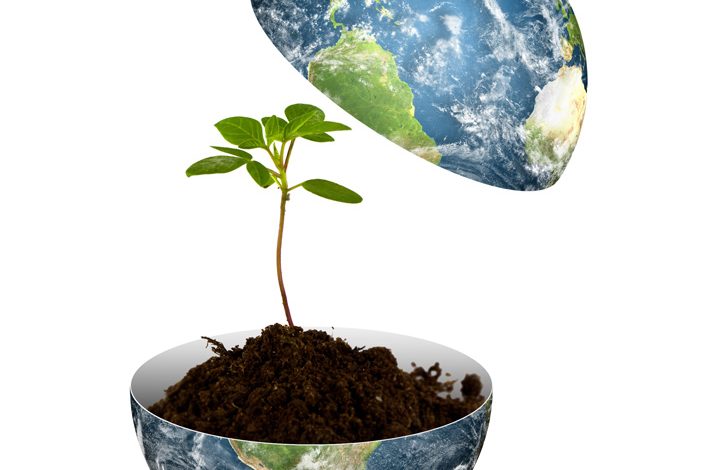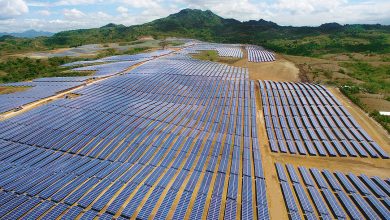Earth Day is the worst time to be planting trees

By Jose Andres A. Canivel, Executive Director, Forest Foundation Philippines
MANY PEOPLE want to plant trees on Earth Day, April 22, which is in the middle of our summer. We don’t encourage planting on that day. We tell our partners, unless you’re planting in your own backyard, do not have any illusions about planting on Earth Day. The best time to plant is during the rainy season. There’s plenty of water for the plants and the soil is just cool enough for their growth. The core considerations for tree planting are planting the right species, at the right time, in the right area, for the right reasons. These are the “four rights.”
Typically, companies prefer to plant in sites that are accessible by road. Which is fine, we can bring them to sites like these. But the effort might not amount to much, especially if our sites are not suitable for our planting objectives. If you’re planting to protect trees, plant in protection zones. If you’re planting for food, plant in agricultural land. If you want to harvest non-timber forest products for livelihood, plant in multiple-use zones.
Aside from tree planting, there are many ways to contribute to the protection and conservation of our forests. Forest Foundation Philippines implements a four-pronged approach to conservation. We grow forests, livelihoods, partnerships and advocates in the most critical forest landscapes of the country: the Sierra Madre range, Palawan, Samar and Leyte, and Bukidnon and Misamis Oriental.
GROWING FORESTSWe have meaningful partnerships with communities in the forests. Since these are in remote areas, it’s difficult to market these planting sites. However, these sites can absorb carbon, improve forest biodiversity, and positively impact the lives of indigenous peoples and forest-dependent communities. That’s the kind of tree planting project that we offer. Tree planting that will be sustained beyond project timelines because we work with tenured communities, not just organizations that come and go. Last year, we partnered with Origins to reforest a hectare of land in Palawan. Together with our community partners, we planted 1,000 mangrove seedlings that are now being nurtured and maintained by forest guards, who are deputized by the Department of Environment and Natural Resources to protect the site. Beyond planting trees, we also need to protect mature trees. Early this year, we worked with Co Ban Kiat Hardware to facilitate their donation of tools and equipment to the forest guards in Mt. Balabag, which serves as the boundary line of Ipo Watershed, a critical part of the Umiray-Angat-Ipo Watershed that supplies 98% of Metro Manila’s water.
GROWING LIVELIHOODSIt is also important to support livelihoods that are consistent with managing and protecting forests. We’re doing this because we want to incentivize communities who protect the forests, so they will veer away from illegal activities. Of our livelihood projects that are connected to forest conservation, our exemplar is coffee. We have a partner, the Philippine Coffee Alliance, that works with indigenous peoples and forest-based coffee farmers in Bukidnon and Misamis Oriental. By providing livelihood support to the forest-dependent communities and forest guards, they are able to plant better coffee using upgraded technology, while earning a livelihood. During the pandemic, we were also able to sustain the livelihoods of forest-dependent communities in Samar and Palawan by providing diversified income streams to the community, so they can sustain their forest conservation and protection activities. They were able to successfully pivot from ecotourism to food security projects despite challenging times.
GROWING PARTNERSHIPSGrowing partnerships allows us to work with the private sector. In 2012 and 2013, we worked with Condura through their Condura Skyway Marathon program to plant 20 hectares of mangrove forests in Zamboanga Sibugay. More recently, we worked with Cebu Pacific so they can offset their carbon emissions to meet the requirements set by the Civil Aeronautics Board. Together, we are planting 5,200 native seedlings on forest land in Rizal. The area serves as a window to the Sierra Madre, which we consider to be the backbone of Luzon because it protects the country from the onslaught of typhoons. These native trees will recover and expand forest habitats for wildlife, protect watershed and freshwater resources, improve the local natural landscapes, connect forest fragments and secure the livelihoods of forest-dependent communities.
GROWING ADVOCATESTo ensure that the trees that we plant will be nurtured and protected by the people, we must rally them into becoming forest advocates. You cannot grow forests in three years’ time, which is why some of our grants fund advocacy projects, like documentaries and visual projects. We are working with Diinsider Philippines to produce a film documentary called Bantay Bukid, which highlights the important role of forest guards in protecting the forests. It will be released later this year. We are also working with Ms. Cynthia Bauzon-Arre to mainstream the important role of native trees in tree planting. Our experience shows that rather than planting a great number of fast-growing exotic trees, native trees are better options because they have higher chances of growth and have the ability to nurture local wildlife.
WORKING TOGETHER FOR THE FORESTSGuided by our experience, we have developed measures that have allowed us to leverage private sector investment towards sustainable development.
Measuring results. We have metrics for what it costs to restore and protect the forests. We also have environmental and social safeguards to ensure that our projects do not have any negative impacts on the environment and the communities. With this, we are confident that we can protect the investments made by the private sector.
Accelerating impact. Rather than starting from scratch, by working with us, the private sector can contribute to various ongoing initiatives that protect, restore, sustainably manage and conserve forests. We can also build private sector capacity by providing technical assistance in nursery management and tree planting, among others. We hope these initiatives can encourage more stakeholders in the private sector to support our work.
Promoting inclusive development. We can leverage the support of the private sector by forging partnerships between communities and businesses to implement nature-based solutions that will grow forests, while addressing other issues, such as water security, food security, and disaster risk management. We do not just plant trees. We also look after the communities that we plant in and the people that we plant with.
Having said all of that, of course, you can always join us and plant trees. Just not on earth day.
Jose Andres A. Canivel is a lawyer and environmental policy expert. He previously served as development assistance specialist at the Office of Energy and Environment of USAID Philippines and executive director of the Environmental Legal Assistance Center (ELAC).




